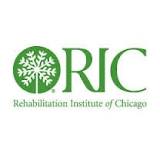Electric Field Navigated 1hz Rtms for Post-stroke Motor Recovery Trial
| Status: | Completed |
|---|---|
| Conditions: | Peripheral Vascular Disease, Neurology |
| Therapuetic Areas: | Cardiology / Vascular Diseases, Neurology |
| Healthy: | No |
| Age Range: | 18 - Any |
| Updated: | 3/15/2019 |
| Start Date: | March 1, 2017 |
| End Date: | August 15, 2018 |
A Prospective, Multi-center, Randomized, Sham-controlled Trial to Determine the Therapeutic Effects of Navigation Guided 1 hz Rtms Administered to the Contralesional Hemisphere as Adjuvant to Task-oriented Rehabilitation in Patients With Ischemic Stroke
A prospective, multi-center, randomized, sham-controlled, blinded study combining active
Nexstim NBS-guided 1Hz rTMS or sham-rTMS targeting the healthy hemisphere with standardized
task oriented rehabilitation will be conducted in patients with post-stroke motor impairment
of the upper limb. The therapy will be provided for 6 weeks and primary outcome assessed 6
months later.
Nexstim NBS-guided 1Hz rTMS or sham-rTMS targeting the healthy hemisphere with standardized
task oriented rehabilitation will be conducted in patients with post-stroke motor impairment
of the upper limb. The therapy will be provided for 6 weeks and primary outcome assessed 6
months later.
Inclusion Criteria:
- ≥ 18 years of age
- An ischemic stroke suffered 3-12 months prior to the study
- No other known brain abnormalities by history;
- A one-sided stroke resulting in upper extremity paresis
- A Chedoke-McMaster Stroke Assessment arm stage and hand stage of 3-6 for the affected
limb
Exclusion Criteria:
- Implanted metallic parts of implanted electronic devices, including pacemakers,
defibrillators, or implant medication pump;
- Pregnant or trying to become pregnant; Lack of pregnancy established in females of
child-bearing potential by a negative urine pregnancy test at screening.
- Active alcohol abuse, illicit drug use or drug abuse or significant mental illness
- Patients suffering from depression as measured by a score of >10 on the Patient Health
Questionnaire (PHQ9). For clarity, patients diagnosed with depression which is
controlled with stable anti-depressive medication and in whom PHQ9 is <10 are eligible
to participate in the trial.
- History of epilepsy, defined as at least two unprovoked seizures occurring greater
than 24 hours apart or diagnosis of an epilepsy syndrome, OR a seizure within the last
12 months.
- Any condition that would prevent the subject from giving voluntary informed consent;
- An implanted brain stimulator;
- Any metal in head with the exception of dental work or any ferromagnetic metal
-elsewhere in the body;
- Enrolled or plans to enroll in an interventional trial during this study;
- Scalp wounds or infections;
- Claustrophobia precluding MRI;
- A fixed contraction deformity in the affected limb that would prevent normal dexterity
if patient were neurologically intact;
- Excessive spasticity as indicated by the Modified Ashworth Spasticity (MAS) Scale >2/4
in either elbow flexors, wrist flexors or finger flexors of the affected limb;
- Previous stroke with residual deficits (TIAs not a reason for exclusion);
- Premorbid (retrospective) modified Rankin Scale (mRS) score ≥2 of any aetiology;
- A concurrent progressive neurologic disorder, acute coronary syndrome, severe heart
disease (NYHA Classification > 3), or other major medical condition,
- Confirmed or suspected lower-limb fracture preventing mobilization, patients requiring
palliative care
- Patients planning to undergo any other occupational therapy during the 6 week active
treatment period of the trial (see section 5.2 for study schedule) than what is
provided in the study
- A recent injection of botulinium toxin to the affected upper limb in the last 3
months, or the need of an injection of botulinum toxin anytime during the study period
and follow up.
- A recent injection of phenol to the affected upper limb in the last 6 months, or the
need of an injection of phenol anytime during the study period and follow up.
- Ataxia as measured by a score > 1 on item 7 (limb ataxia) of the NIH stroke scale.
- Severe sensory deficits as measured by a score of 2 on item 8 of the NIH stroke scale.
- Severe aphasia as measured by a score of > 2 on item 9 (best language) of the NIH
stroke scale.
- Severe neglect as measured by a score of 2 on item 11 (extinction and inattention) of
the NIH stroke scale.
- Patients unable to comprehend or follow verbal commands
- Based on PI's or local physician's assessment patient unable to tolerate the trial
procedure due to medical condition
- A Mini mental status exam (MMSE) <25.
We found this trial at
5
sites
345 E Superior St
Chicago, Illinois 60611
Chicago, Illinois 60611
(312) 238-1000

Principal Investigator: Richard L Harvey, MD
Rehabilitation Institute of Chicago The Rehabilitation Institute of Chicago (RIC) is an independent, 501(c)3, non-profit...
Click here to add this to my saved trials
300 1st Avenue
Boston, Massachusetts 02129
Boston, Massachusetts 02129
617-952-5000

Principal Investigator: Felipe Fregni, MD
Spaulding Rehabilitation Hospital At Spaulding Rehabiliation Hospital Boston, our unique approach to therapy includes use...
Click here to add this to my saved trials
2600 Clifton Ave
Cincinnati, Ohio 45267
Cincinnati, Ohio 45267
(513) 556-6000

Principal Investigator: Kari Dunning, PhD
University of Cincinnati The University of Cincinnati offers students a balance of educational excellence and...
Click here to add this to my saved trials
Downey, California 90242
Principal Investigator: Charles Y Liu, MD
Click here to add this to my saved trials
White Plains, New York 10605
Principal Investigator: Dylan Edwards, PhD
Click here to add this to my saved trials